Vice President Hsiao Bi-khim (蕭美琴) yesterday emphasized Taiwan’s commitment to defending itself in a call for the nation’s allies and like-minded partners to preserve global peace and prosperity.
To invest in Taiwan’s capabilities is to invest in peace, she told this year’s Halifax International Security Forum in Taipei in a closing speech.
Taiwan is a small nation, but the Taiwanese ethics of hard work, innovation and resilience can be wielded to extraordinary effect as a force for justice and progress, she said, adding that the nation is indispensable to peace and stability in the Indo-Pacific region.
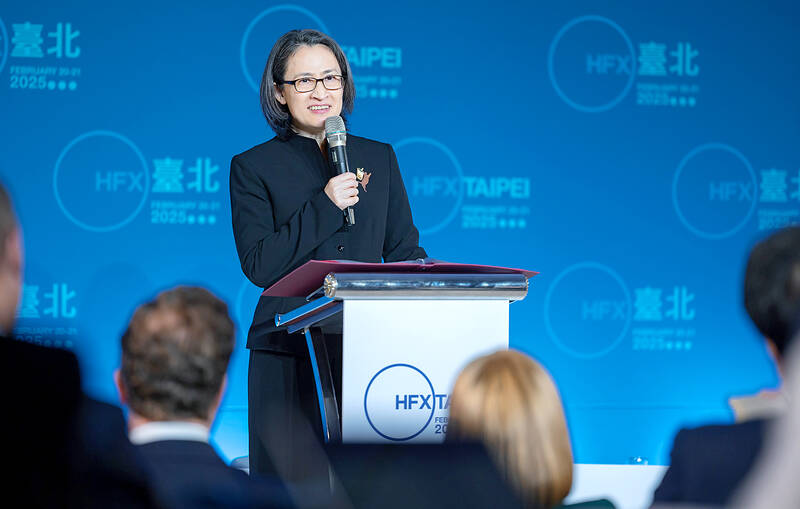
Photo: screen grab from the Presidential Office’s Flickr
The nation’s hosting of the event showed that people from around the world could come together to rally in defense of their shared values, she added.
The forum’s participants share a firm belief in the democratic system of government’s importance to human rights, economic prosperity and international peace, Hsiao said.
Yet, tragedies and conflicts afflict the world every day, she said, adding that leaders cannot afford to be complacent, and must remain cautious and strive to do better with a sense of urgency.
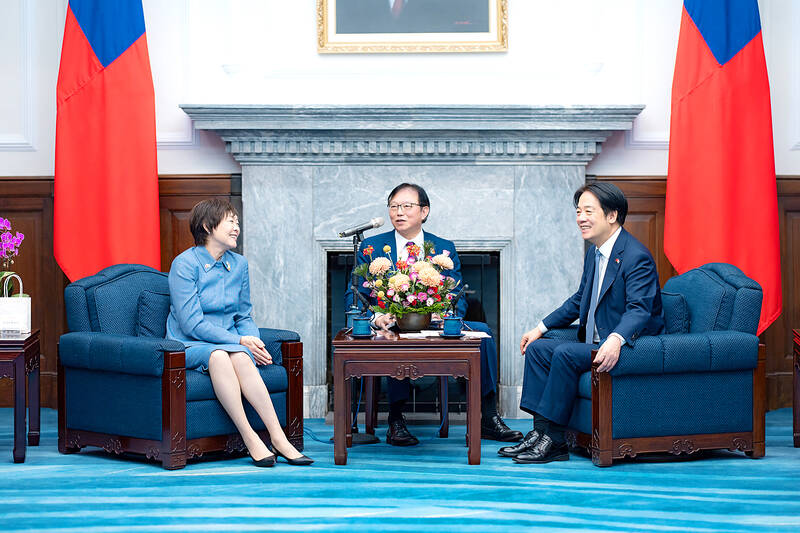
Photo: screen grab from the Presidential Office’s Flickr
Taiwan has increased its defense spending, strengthened the training and capabilities of military reserves, and obtained better weapons systems for its armed forces, Hsiao said.
Concurrently, the nation has made use of Taiwanese innovation and the capabilities of the private sector to enhance national security, she said.
Taiwan has taken a precise and specific approach to bolster its ability to defend itself against the nation’s most significant threat, the Chinese Communist Party and its People’s Liberation Army, she said.
China frequently intrudes into Taiwan’s air defense identification zone, and conducts cyberattacks against the nation in a bid to undermine Taiwanese confidence in the government and democratic institutions, Hsiao said.
Beijing’s “gray zone” tactics conducted across multiple domains require a multidomain response from a determined nation, she said.
President William Lai’s (賴清德) Whole-of-Society Defense Resilience Committee has been established to augment the nation’s civil defense, response to natural disasters and economic resilience, Hsiao said.
Taiwan has observed global geopolitical changes that have called for a renewed focus on defending its values and turning the current crisis into an opportunity, she said.
Meanwhile, Akie Abe, wife of the late Japanese prime minister Shinzo Abe, also spoke at the forum, saying that holding the event in Taiwan is an act that holds special meaning amid the current period of international turmoil.
Citing her late husband, Akie Abe reiterated that a Taiwan contingency is a Japan contingency, and that peace in the Taiwan Strait is crucial to the region, adding that Shinzo Abe’s love of peace carries an important message to the world.
Separately, Lai yesterday also met with Akie Abe at the Presidential Office to thank her for Shinzo Abe’s ideals, and contributions to regional peace and prosperity, and called for the continued support of the nation’s friends and allies.
Additional reporting by Su Yung-yao

Taiwan’s Lee Chia-hao (李佳豪) on Sunday won a silver medal at the All England Open Badminton Championships in Birmingham, England, a career best. Lee, 25, took silver in the final of the men’s singles against world No. 1 Shi Yuqi (石宇奇) of China, who won 21-17, 21-19 in a tough match that lasted 51 minutes. After the match, the Taiwanese player, who ranks No. 22 in the world, said it felt unreal to be challenging an opponent of Shi’s caliber. “I had to be in peak form, and constantly switch my rhythm and tactics in order to score points effectively,” he said. Lee got
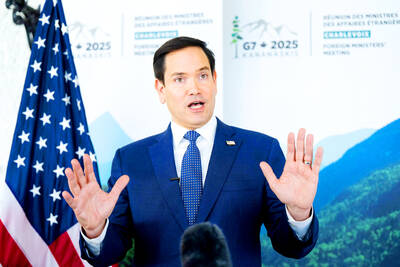
‘CROWN JEWEL’: Washington ‘can delay and deter’ Chinese President Xi Jinping’s plans for Taiwan, but it is ‘a very delicate situation there,’ the secretary of state said US President Donald Trump is opposed to any change to Taiwan’s “status quo” by force or extortion and would maintain that policy, US Secretary of State Marco Rubio told the Hugh Hewitt Show host on Wednesday. The US’ policy is to maintain Taiwan’s “status quo” and to oppose any changes in the situation by force or extortion, Rubio said. Hewitt asked Rubio about the significance of Trump earlier this month speaking with Taiwan Semiconductor Manufacturing Co (台積電) chairman C.C. Wei (魏哲家) at the White House, a meeting that Hewitt described as a “big deal.” Asked whether the meeting was an indication of the
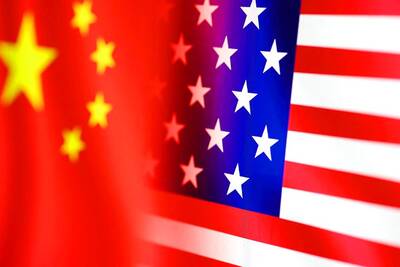
‘RELATIVELY STRONG LANGUAGE’: An expert said the state department has not softened its language on China and was ‘probably a little more Taiwan supportive’ China’s latest drills near Taiwan on Monday were “brazen and irresponsible threats,” a US Department of State spokesperson said on Tuesday, while reiterating Washington’s decades-long support of Taipei. “China cannot credibly claim to be a ‘force for stability in a turbulent world’ while issuing brazen and irresponsible threats toward Taiwan,” the unnamed spokesperson said in an e-mailed response to media queries. Washington’s enduring commitment to Taiwan will continue as it has for 45 years and the US “will continue to support Taiwan in the face of China’s military, economic, informational and diplomatic pressure campaign,” the e-mail said. “Alongside our international partners, we firmly
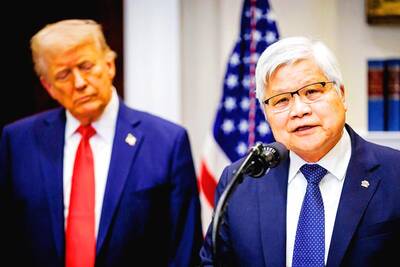
KAOHSIUNG CEREMONY: The contract chipmaker is planning to build 5 fabs in the southern city to gradually expand its 2-nanometer chip capacity Taiwan Semiconductor Manufacturing Co (TSMC, 台積電), the world’s biggest contract chipmaker, yesterday confirmed that it plans to hold a ceremony on March 31 to unveil a capacity expansion plan for its most advanced 2-nanometer chips in Kaohsiung, demonstrating its commitment to further investment at home. The ceremony is to be hosted by TSMC cochief operating officer Y.P. Chyn (秦永沛). It did not disclose whether Premier Cho Jung-tai (卓榮泰) and high-ranking government officials would attend the ceremony. More details are to be released next week, it said. The chipmaker’s latest move came after its announcement earlier this month of an additional US$100 billion